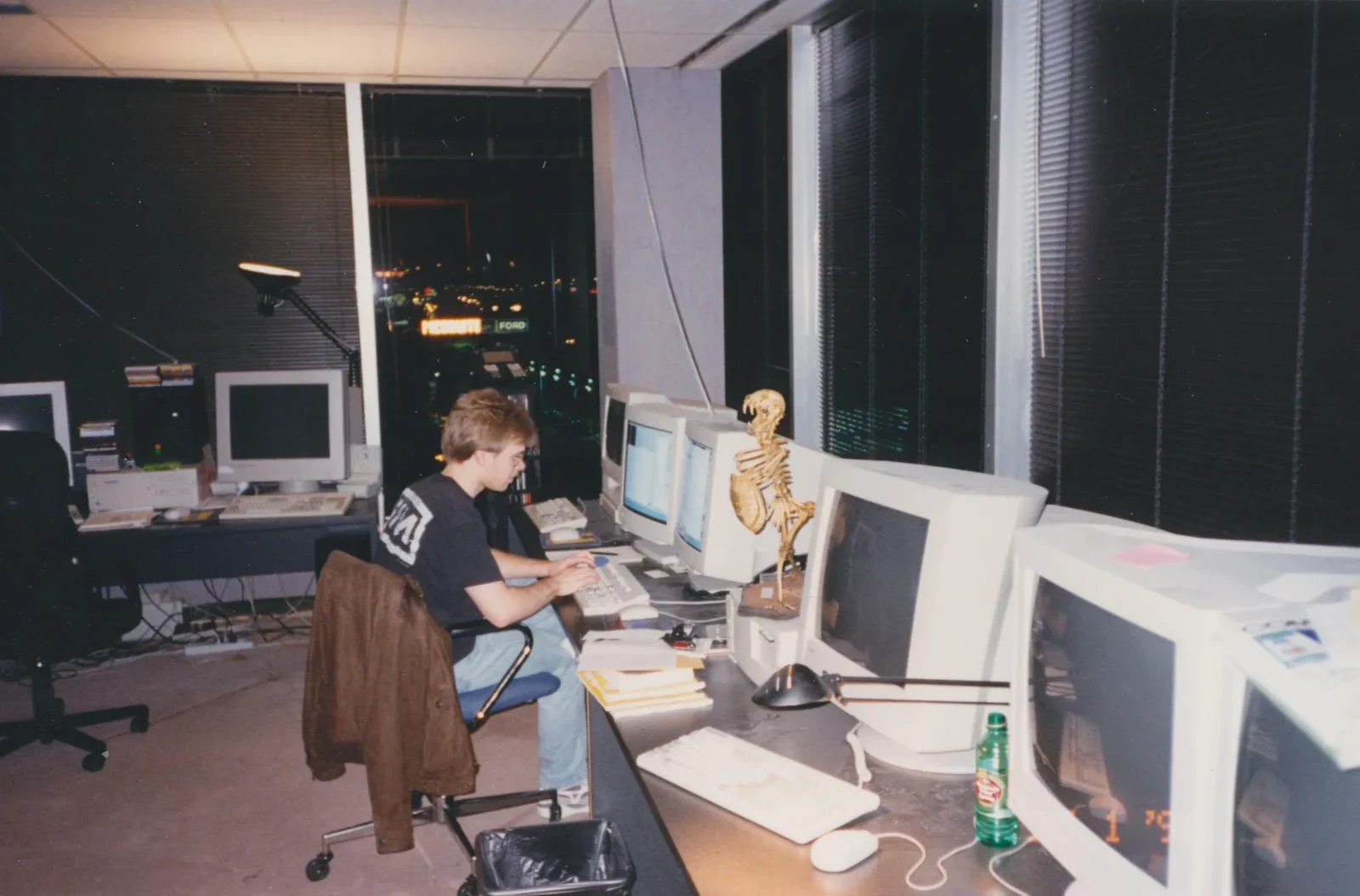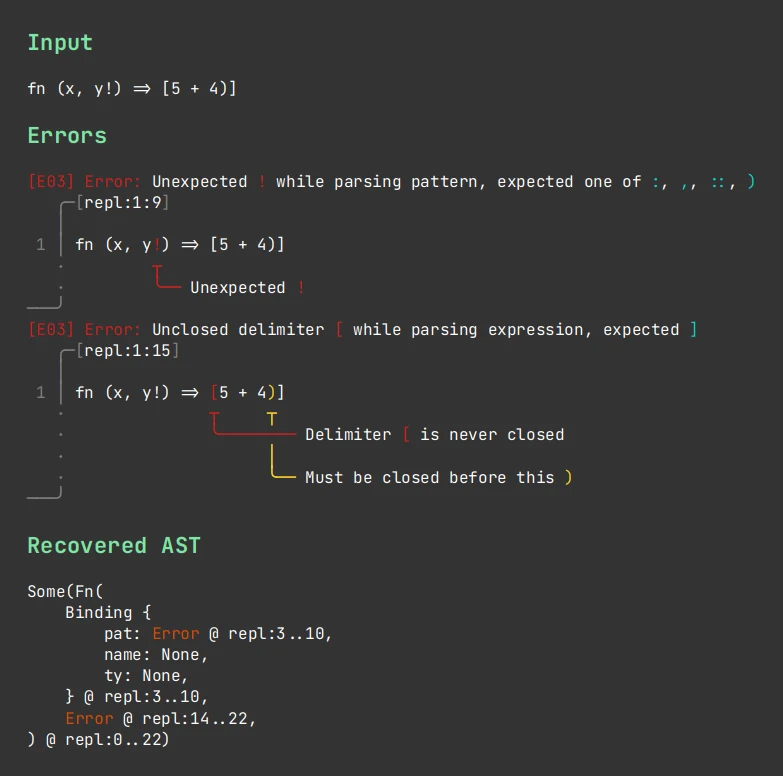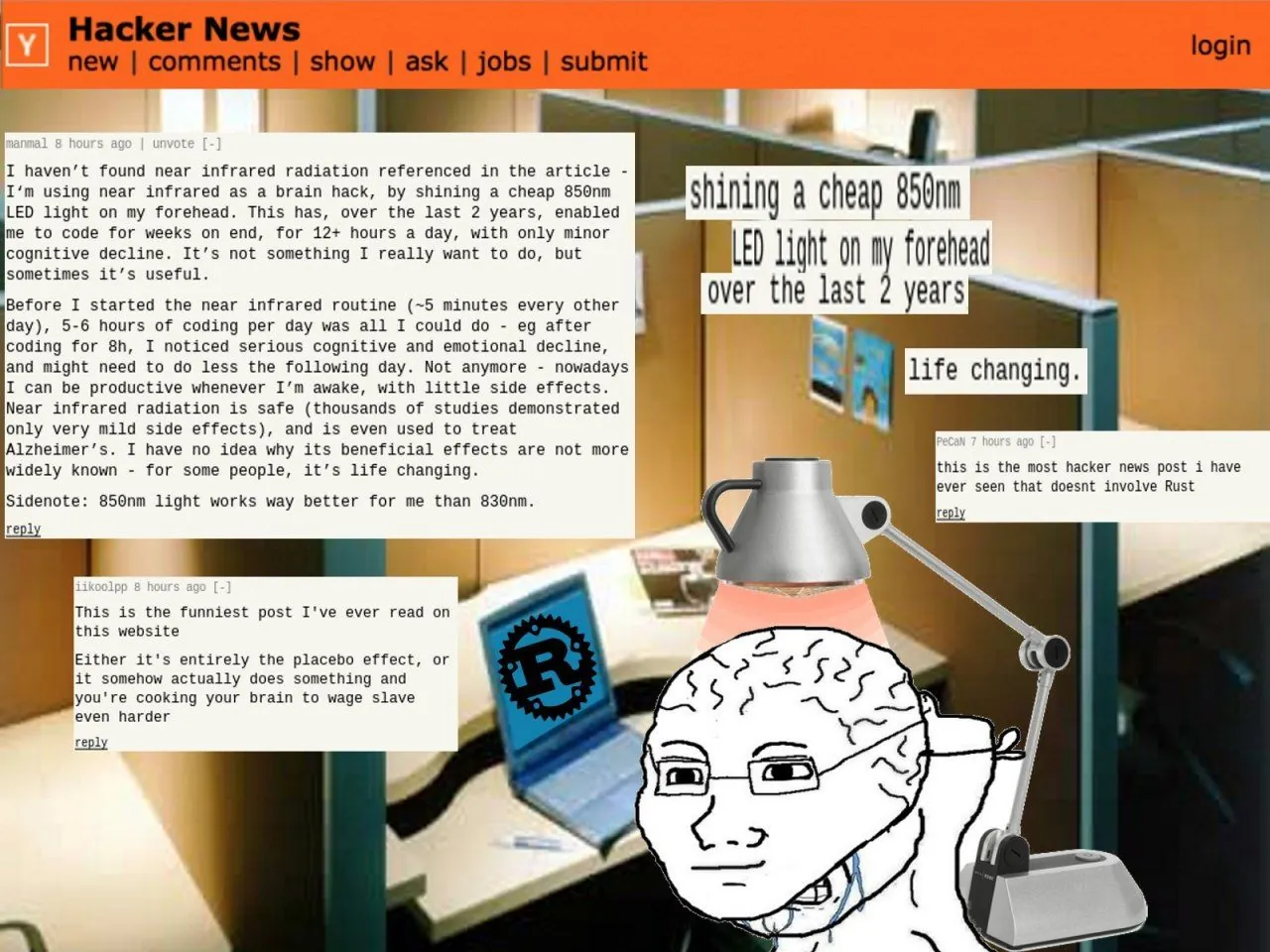- 1
- 6
- 4
- 6
http://oldvcr.blogspot.com/2022/10/going-where-beos-netpositive-hasnt-gone.html
But no rDrama 
(jk every Web Browser available on Haiku can't get past the Cloudflare captcha)
- 1
- 6
- 1
- 6
- 1
- 6
- 14
- 6
Stop being followed online
By default, Brave blocks the trackers & creepy ads on every website you visit. And that thing where ads follow you across the Web? We block that, too.
Online privacy made simple
All the good of ad-blocking, incognito windows, private search, even VPN. All in a single download.
Switch in 60 seconds
Quickly import bookmarks, extensions, even saved passwords. It’s the best of your old browser, only safer. And it only takes a minute to switch.
The new super app
Brave brings truly independent search, free video calls, offline playlists, even a customizable news feed. All fully private. All right to your browser super app.
Privacy you can see
No creepy ads & trackers means less stuff (visible or hidden) on the sites you visit. And that means faster page load, better battery life, even mobile data savings.
Advanced features
Only here for the privacy? We got you. Just download and enjoy…
Want a more bespoke experience? Brave’s got great customizations, too:
Advanced security
Built-in IPFS integration, onion routing with Tor, custom filter lists, and more security features.
Brave Rewards
Earn crypto tokens for your attention by opting in to privacy-preserving, first-party ads.
Crypto wallet
A secure, browser-native wallet to buy, store, send, and swap your crypto assets.
Simply put, the Brave Browser is 3x faster than Google Chrome. By blocking all privacy-invading ads & trackers by default, there's less stuff to load on every single webpage you visit. That means pages load much faster, saving you time, money, and battery life. It also means you're much safer online.
- 6
- 6
Eat the bug and live in the pod etc. Wait...
For many companies—and many industries—the COVID-19 pandemic set off a period of head-spinning change. They realized they were capable of moving faster than they ever thought possible. They went digital in a matter of days, not years. They offered new services almost overnight. If companies sustain this newfound speed and agility, it’s conceivable that more innovation will happen in the next ten years than in any previous decade in modern history. Life in the 2030s could be vastly different from today.
In 2019, we launched a multimedia series in which business leaders and McKinsey experts describe what the 2030s might look like. We called the series The Next Normal, to refer to things that experts say could become commonplace in a few years but today are cutting-edge or even nonexistent: things like lab-grown meat, or digital wardrobes, or robot surgeons.
When COVID-19 took over the world, our use of the term evolved: the “next normal” became synonymous with postpandemic realities. But we’ve continued to ask leaders to look beyond the near-term future and envision their respective industry’s next decade. Scroll down to read some of their more evocative—and provocative—predictions.
Could our experts’ prognostications be wrong? Of course. But chances are, in 2035 or thereabouts, much of what’s described below will indeed just be … normal.
An out-of-this-world vacation won’t be out of the question. A short stay at a space hotel? A weekend on the moon? An entire summer on Mars? Sure. Because rocket launches will have become so much less expensive, many more people will venture into outer space. Tens of thousands of satellites will be up there, too, allowing everyone on earth to connect to the internet from anywhere, making weather forecasts much more accurate, and … trying not to bump into one another (otherwise, space debris could become a big problem).
Electric flying vehicles will be commonplace—and quiet. Riding in electric air taxis won’t cost much more than taking regular taxis, and they’ll be nowhere near as loud as helicopters, so you might take an eVTOL a few times a week. An eVTOL (pronounced “ee-vee-tol”) is an electric vertical takeoff and landing aircraft. In the 2030s, eVTOLs will routinely transport people and cargo within a 100-mile radius. Some eVTOLs will be flown by pilots sitting in the cockpits; others will fly semi-autonomously, with pilots controlling them from the ground.
Boxes, bottles, and bags will be ‘smart’ and sustainable. In the future, if you want to make a cocktail that you know you’ll like, you’ll just scan your beverage bottle to get personalized recipe recommendations. Yogurt containers will have sensors that tell you when the yogurt has gone bad. The bag of chips in your pantry? After you eat the chips, you’ll either reuse the bag or eat it—it’ll be vegetable-based and actually pretty tasty.
Drones will deliver your packages. In 2030, an estimated 200 billion packages will be sent out for delivery. Your packages will arrive at your doorstep—or, sometimes, at your window—via drone, robot, or autonomous vehicle. Some parcels will be transported underground: in dense cities, tunnels will convey packages directly from distribution centers to the basements of apartment buildings.
Movies will be interactive and immersive. You’ll be able to watch a movie and play a game with your friends at the same time—because the movie will be a game. You can enjoy the movie with your friends even if you’re at home and they’re at a movie theater. If there’s a wintry scene on screen, you’ll all feel cold wind blowing on your faces. And you’ll have many diverse movies and shows to choose from—but choosing will be easy, because algorithms will have figured out exactly what you want to watch, when, and with whom.
Connected devices will track your health and wellness. Your fridge will make suggestions about what you should eat and drink based on how much sleep, exercise, and nutrients you’ve gotten that day—because, of course, your fridge will be connected to sleep sensors under your mattress, to your wearable fitness tracker, and to your mindfulness apps. By the way, if you’d like your diet to consist mostly of, say, plant-based food or sugar-free products, you’ll have plenty of options.
The high-rise of the future will be a mixed-use building. Apartments might take up ten floors, offices another ten, and hotel rooms yet another ten. There will be stores, restaurants, gyms, and maybe a rooftop lounge. If you’re a tenant, you’ll have access to a wide variety of on-site services—from childcare and eldercare to dry cleaning and dog walking—and, for all of these, you’ll be able to book appointments and make reservations through apps or other digital platforms.
The in-store shopping experience will be highly personalized. When you walk into a clothing store, digital mannequins will change what they’re wearing based on what you’re wearing. If you’ve shopped there before, the music you hear and the scents you smell will be tailored to your tastes. Salespeople at the store can quickly look up your purchase history and shopping preferences using their mobile devices, so they’ll be able to make personalized recommendations.
You can buy a car—or you can buy access to many cars. Instead of owning one specific vehicle, you might buy a subscription package that gives you options: a compact car on weekdays, a bigger car for weekend getaways, a convertible in the summer, an SUV for winter trips to the mountains. You’ll never have to haggle; each package will have a fixed price. And you won’t have to go to the dealership if you don’t want to. Through virtual reality, you’ll be able to look at as many cars as you want, examine their features, and even test-drive them—all while sitting on your living-room couch.
- 1
- 6
Orangesite: https://news.ycombinator.com/item?id=32031591
Features
Lots of combinators!
Generic across input, output, error, and span types
Powerful error recovery strategies
Inline mapping to your AST
Text-specific parsers for both
u8s andcharsRecursive parsers
Backtracking is fully supported, allowing the parsing of all known context-free grammars
Parsing of nesting inputs, allowing you to move delimiter parsing to the lexical stage (as Rust does!)
Built-in parser debugging
- 3
- 6
- 1
- 6
- 7
- 6




















 vlad is a Russian vampire name
vlad is a Russian vampire name  MAYO: Practical Post-Quantum Signatures from Oil-and-Vinegar Maps
MAYO: Practical Post-Quantum Signatures from Oil-and-Vinegar Maps 












































